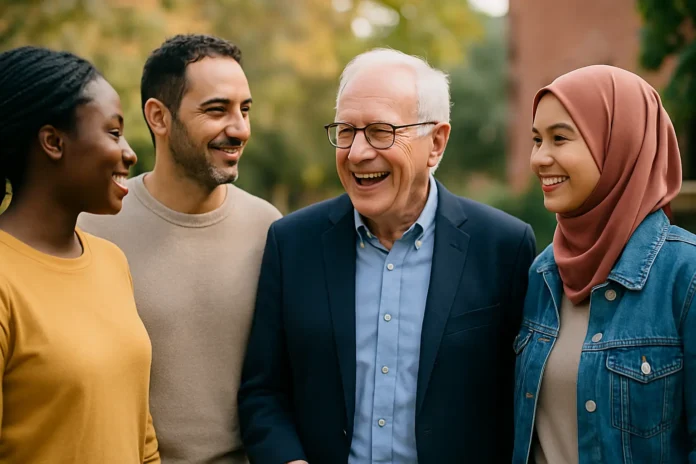Moving to a new country can be exciting but also overwhelming, especially when it comes to things like healthcare. If you’re a new migrant in Australia, understanding how to find a doctor, bulk billing, and using your Medicare card can seem confusing at first. Don’t worry, though – we’ve got you covered with this simple guide to help you navigate the system.
1. Understanding the Australian Healthcare System
Australia has a healthcare system that mixes public and private services. The public side is called Medicare, which is funded by the government and provides free or low-cost medical services. With Medicare, you can visit general practitioners (doctors) and access healthcare services without paying the full price.
If you’re eligible, you’ll get a Medicare card, which is your key to accessing these services. For many visits to the doctor, you might not have to pay anything out of pocket if your doctor offers bulk billing. Sounds good, right? But how do you get a Medicare card and find a doctor who bulk bills? Let’s break it down.
2. How to Find a Doctor in Australia
There are a few ways to find a doctor in your area:
- Ask around – Friends, family, or local community members can recommend doctors.
- Online directories – Websites like HealthEngine or HotDoc allow you to search for doctors based on your location.
- Local clinics – Many medical centres and local clinics have doctors who can treat you.
One important thing to keep in mind is whether the doctor bulk bills. Bulk billing means the doctor charges Medicare directly, so you won’t have to pay anything for the visit. When you’re looking for a doctor, you can check if they offer bulk billing on their website or call ahead to ask.
“When I first moved to Sydney, I didn’t know where to start with healthcare. I was worried about costs, but then a neighbour told me about bulk billing. I found a clinic nearby that bulk bills and it’s been such a relief to know that I can see a doctor without stressing about money.” — Rose, a new migrant from the Philippines.
3. What is Bulk Billing and How Does It Work?
So, what exactly is bulk billing? Simply put, it’s a system where your doctor charges Medicare for your visit instead of charging you directly. This is common for routine check-ups, minor health issues, and even some tests. Not all doctors offer bulk billing, so it’s good to check before making an appointment.
For bulk billing to work, you’ll need your Medicare card. When you visit a bulk-billing doctor, you just show your card, and that’s it. No need to take out your wallet or worry about payments.
“I found a family doctor who bulk bills all of us, including my kids. It’s so convenient because I know we can get care without worrying about out-of-pocket costs.” — Ahmed, a new migrant from Egypt.
4. Getting a Medicare Card
Your Medicare card is essential for accessing healthcare in Australia. Here’s how you can apply:
- Check your eligibility – Most migrants on permanent visas, some temporary visas, and those from countries with reciprocal healthcare agreements can apply.
- Apply online or in person – You can apply for Medicare online via the MyGov website or visit a Medicare service centre.
- Provide the right documents – You’ll need ID and visa documents to prove your eligibility.
- Wait for your card – After applying, your card will be mailed to you, usually within a few weeks.
Once you have your card, you can use it for doctor visits, hospital care, and other health services covered by Medicare. If you don’t have a card yet or aren’t eligible, private health insurance is an option for covering medical costs.
5. Doctor Services for New Migrants
Doctors, also called general practitioners (GPs), are your first stop for healthcare in Australia. GPs can treat a wide range of issues, including:
- General check-ups
- Immunizations and vaccinations
- Referrals to specialists if needed
- Mental health support
- Women’s health services
GPs are also great for regular monitoring of your health, especially if you have any ongoing conditions like diabetes or high blood pressure. They can help manage your care and refer you to specialists when needed.
When you book an appointment, it’s important to mention if you prefer a doctor who speaks your language or if you need an interpreter. Many clinics offer support for migrants, making it easier to communicate your needs.
6. Accessing Healthcare if You Don’t Have Medicare
If you don’t have a Medicare card yet, or you’re still waiting for it to arrive, there are other options:
- Private health insurance – Many migrants choose private health insurance to cover their healthcare until they’re eligible for Medicare.
- Community health centres – These centres sometimes offer low-cost services for migrants without Medicare. It’s worth checking if there’s one in your area.
“I was on a temporary visa when I first arrived, and I didn’t qualify for Medicare. Luckily, my private health insurance covered most of my doctor visits, and I also found a community clinic that offers affordable healthcare for migrants. It’s a great backup plan while you wait for Medicare.” — Sara, a student from India.
7. Tips for Booking and Visiting a Doctor
Booking a doctor’s appointment is simple. You can usually do it online through clinic websites or apps, or you can call the clinic directly. When you visit, don’t forget to bring your Medicare card, especially if the clinic bulk bills.
During your visit, it’s helpful to make a list of any symptoms or health concerns you want to discuss with your doctor. That way, you can make the most of your time.
8. The Benefits of Having a Regular Doctor
Once you find a doctor you’re comfortable with, it’s a good idea to stick with them. Having a regular doctor means they’ll get to know your health history, which helps with ongoing care and makes your visits smoother.
A regular doctor can help manage chronic conditions, keep track of vaccinations, and ensure you’re in good health throughout your time in Australia. Many bulk-billing clinics make it easy to keep seeing the same doctor.
9. Health Resources for Migrants
Here are some useful resources to help you navigate healthcare as a new migrant:
- Medicare website: Medicare Services
- HealthEngine and HotDoc: Websites and apps for booking doctor appointments.
- Community health centres: Look for local centres that offer affordable healthcare services for migrants.
Finding a doctor and understanding bulk billing and Medicare in Australia doesn’t have to be complicated. Whether you’re using your Medicare card for the first time or looking for bulk-billing doctors, the key is to take it step by step. Remember, the healthcare system is designed to help you, and there are plenty of resources available to make it easier.
If you’re a new migrant, make sure to explore more helpful guides on themigrant.au and share this article with anyone who might need it! Your health is important – start by finding a doctor who can support you on your new journey in Australia.
Looking to apply for an Australian visa or explore migration opportunities? We can connect you with a trusted Registered Migration Agent who specializes in student, skilled worker, partner, family, and visitor visas. Whether you're planning to study, work, or settle in Australia, they’ll guide you through every step of the process. Send your inquiries to themigrant.au@gmail.com, and we’ll help you get in touch with the right experts for your visa and migration needs!





